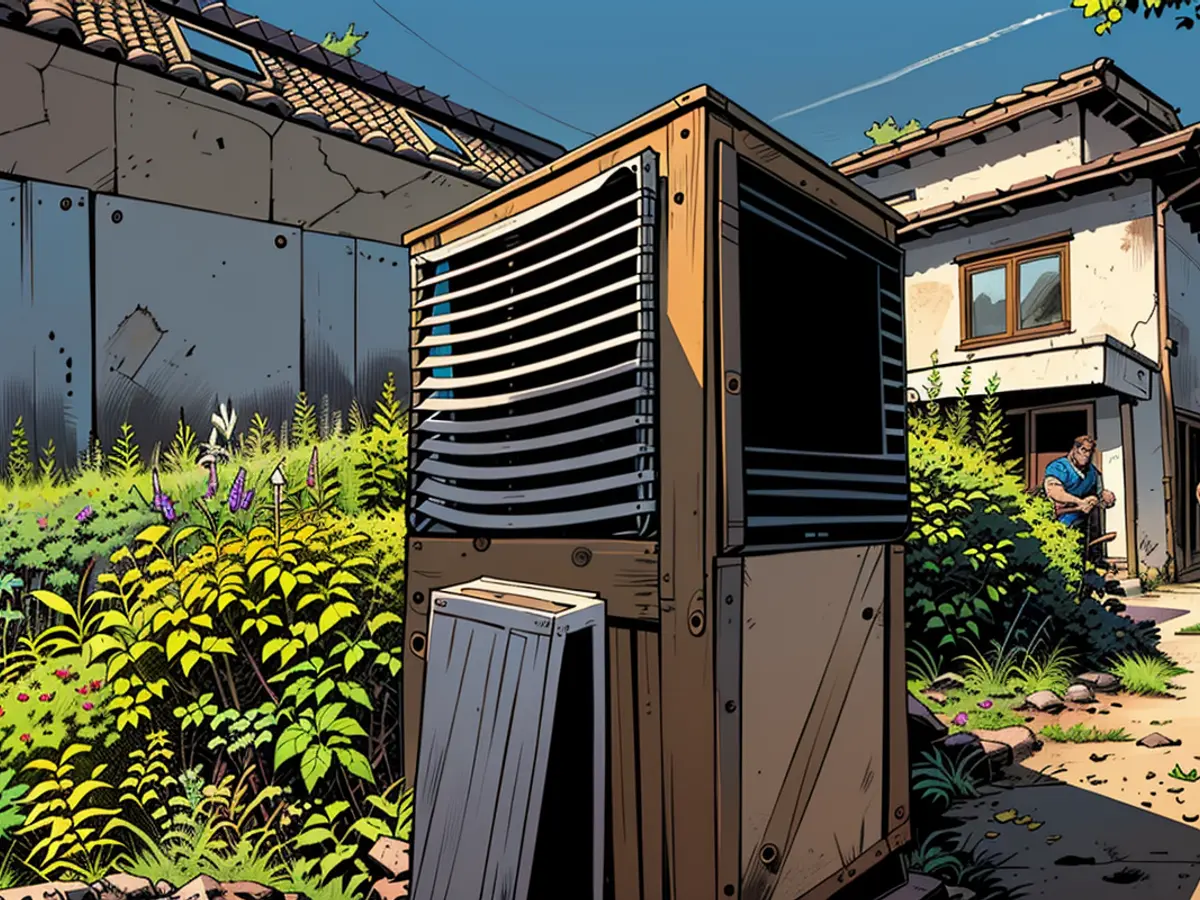- Homeowners Now Qualify for Subsidies under Heating Assistance Program
Commencing Tuesday, all apartment owners, homeowners, landlords of single-family homes, corporations, and municipalities can submit applications for state funding to switch out outdated gas and oil heaters with more eco-friendly alternatives. The KfW banking institution made this announcement regarding the third phase of the Heating Act funding.
Previously, property owners of multi-family buildings, single-family homeowners, and housing cooperatives with central heating systems could already receive state support under the Heating Act's eligibility requirements.
Up to 70% funding available
At the very least, a 30% funding allocation is guaranteed, whether it's for residential or commercial properties. Depending on income, speed, and implementation of the heating exchange, up to 70% subsidies can be granted. Property owners living in their residence and obtaining less than 40,000 euros in taxable household income annually are eligible for an additional 30% income bonus.
Beginning in 2028, owners of single-family homes receiving self-occupancy benefits will obtain an early exchange bonus of 20% by replacing their old gas and oil heaters, night storage heaters, and outdated biomass heaters. An additional 5% efficiency bonus is also accessible for heat pumps utilizing water, earth, or sewage as heat sources or employing natural refrigerants, according to the ministry.
As a result of the new Heating Act, by 2024, every newly installed heater should operate with renewable energy sources for 65% of its usage. Initially, these regulations will only apply to new buildings in new development areas. Existing heaters may continue to be used without restrictions.
Heating Act objectives not fully met
According to the Federal Ministry of Economics and Climate Protection (BMWK), approximately 93,000 approvals have been issued. This total includes applications from property owners in multi-family buildings and housing cooperatives. The BMWK expects a surge in funding numbers as more groups become eligible.
Since the launch in February, monthly approvals have steadily increased, but still trail behind expectations. For example, the sale of heat pumps has recently experienced a significant decline, as reported by the Federal Association of the German Heating Industry (BDH) in late July. Only 90,000 devices were sold during the first half of the year, which represents a 54% decrease compared to the prior year. While the previous year was a record year for heat pump sales, the BMWK attributed this year's decline to advance effects and increased interest rates.
However, the BDH expects an increase in approvals with the availability of funding for additional groups. The association anticipates that second-half sales will surpass those of the first half. "While we remain cautiously optimistic that the second half of the year will be better than the first, we still forecast a maximum of 200,000 heat pumps sold by year-end," a spokesperson stated when asked to comment.
The federal government established a goal of installing 500,000 heat pumps every year starting in 2024.
In light of the expanded eligibility, many real estate entities such as apartment owners, homeowners, landlords, corporations, and municipalities are now eligible to apply for state funding to upgrade their outdated gas and oil heaters with more eco-friendly alternatives. With the third phase of the Heating Act funding, real estate owners can benefit from up to 70% funding, subject to income and other factors.








